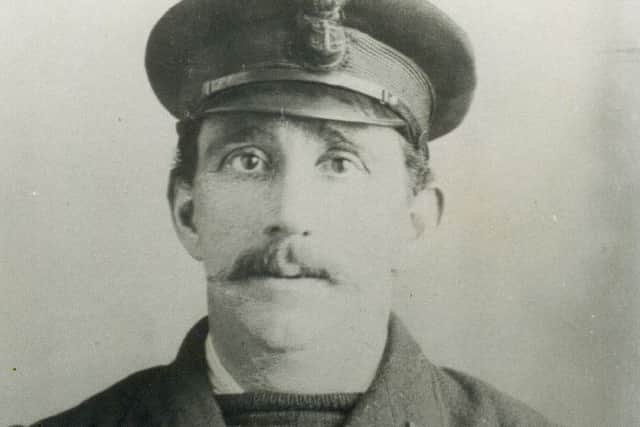The story of Britain’s fishermen and the crucial yet often undervalued role they played during the First World War


But there is another significant chapter in this story, though it’s one that is often overlooked, and that’s the role of fishermen and trawlermen who risked their lives in order to protect the nation’s supply lines.
The story of these vessels and their crews is put centre stage by Dr Robb Robinson, honorary research fellow at the University of Hull, in his new book – Fishermen, the Fishing Industry and the Great War at Sea: A Forgotten History?
Advertisement
Hide AdAdvertisement
Hide Ad“In the run-up to the commemorations for the Great War, and during them, a lot of the coverage regarding the war at sea focused on the dreadnoughts and the Battle of Jutland. But there are so many other stories out there, particularly the crucial role played by the nation’s fishermen and trawlermen,” says Robinson.


Little has been published about the role played by fishing vessels and coastal communities all round the British Isles.
Yet fishermen and armed fishing craft were continually on the maritime front line throughout the conflict; they formed the backbone of the Auxiliary Patrol and were in constant action against U-boats or engaged in unrelenting minesweeping duties.
Around 3,000 fishing vessels were requisitioned and armed by the Admiralty and more than 39,000 fishermen joined the Trawler Section of the Royal Naval Reserve.
Advertisement
Hide AdAdvertisement
Hide AdAs Robinson points out, they played several key roles. “Some boats were converted to be minesweepers and this was a dangerous job for the crews, because one vessel was lost every other week and each time a boat was sunk half the crew was lost, too.”
Others were tasked with anti-submarine warfare which often resulted in a deadly game of cat and mouse between them and the German U-boats with casualties on both sides. At the same time, some fishing vessels were still needed to go out and maintain the beleaguered nation’s food supplies.
“We are an island nation and Germany wanted to cut our supply lines so those men at sea were on the frontline of the maritime war. There were pitched battles between our trawlers and drifters and the U-boats.”
Yorkshire’s coastal communities and their fishermen and trawlermen played an important part in this defence of the nation. “Wherever there was a theatre of war at sea during the war, fishermen from Yorkshire and the Humber were involved and the wrecks of some of their vessels can be found on the sea bed.”
Advertisement
Hide AdAdvertisement
Hide AdThe cost of this war of attrition is greater than many people realise and of the 1,657 trawlers registered in Britain in 1913, 503 were lost while fishing, or on Admiralty service, during the conflict.
“If you drained the North Sea you could see the war channels that stretch from Flanders all the way to the east coast,” says Robinson.
In the immediate aftermath of the war, their efforts were acknowledged but over time their endeavours slipped off the radar as the big naval battles dominated the story of the war at sea.
“It was told by naval historians whereas most fishermen, apart from in letters and diaries, didn’t write much about their experiences.”
Advertisement
Hide AdAdvertisement
Hide AdYet their bravery is something we ought to be proud of. “The story of our fishing communities during the war has largely been forgotten and I think it deserves to be told because they played an important part in the defence of this country.”
Fishermen, the Fishing Industry and the Great War at Sea: A Forgotten History?, published by Liverpool University Press, is out now.